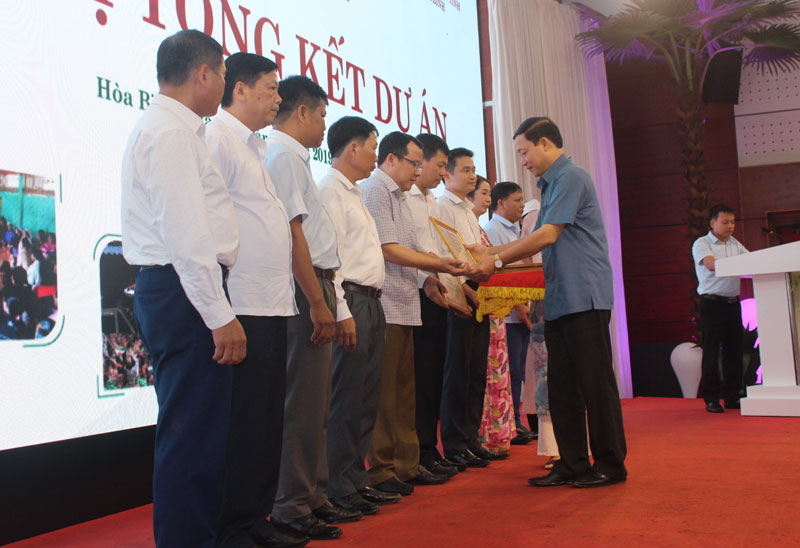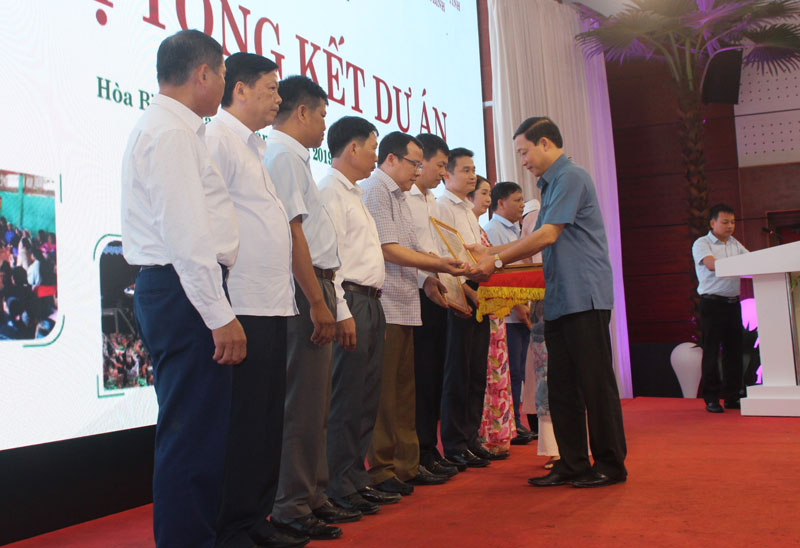


After the success of the first phase in the 2002-2007 period, as Hoa Binh remained one of the most disadvantaged provinces in Vietnam’s northern mountainous region, the province was chosen to be among six provinces to join the project’s second phase by the ministries, sectors and the World Bank (WB).
In the nine years from 2009 to 2018, with a budget of more than 849 billion VND (36.56 million USD), of which over 770 billion VND was mobilised from loans provided by the WB, the project was implemented in 374 villages of 42 communes in five communes of Da Bac, Mai Chau, Tan Lac, Lac Son and Yen Thuy.
More than 154,400 local households benefitted from the project while over 6,000 activities in small-scaled infrastructure and livelihoods were invested in, with the communal-level authorities as managers, and more than 250 in infrastructure and connectivity, with district-level ones.
 Vice Chairman of the provincial People’s Committee Bui Van
Cuu presents certificates of merit from local authorities to collectives with
outstanding results in poverty reduction activities.
Vice Chairman of the provincial People’s Committee Bui Van
Cuu presents certificates of merit from local authorities to collectives with
outstanding results in poverty reduction activities.
As of June 2018, as many as 209 construction works with district-level authorities as investment managers had been completed, benefitting more than 27,100 households. Meanwhile, over 1,000 infrastructure sub-projects with communak-level authorities as investment managers, have helped about 70,700 families.
In addition, 37 partnerships were established in the period, drawing the participation of 14 partners and more than 8,700 households and organizations, with 397 groups sharing the same interest.
Addressing the event, Vice Chairman Cuu spoke highly of the results of the project’s second phase for the province’s socio-economic development.
He said that even though the second phase has come to an end, it is important for sectors, districts and communes to further improve capacity of staff to bolster resources.
The localities receiving infrastructure investment need to care for, protect and zone off budget to preserve and bring into full play the efficiency of the construction works, in order to avoid the phenomenon that when a project ends, its infrastructure is neglected and becomes dilapidated./.